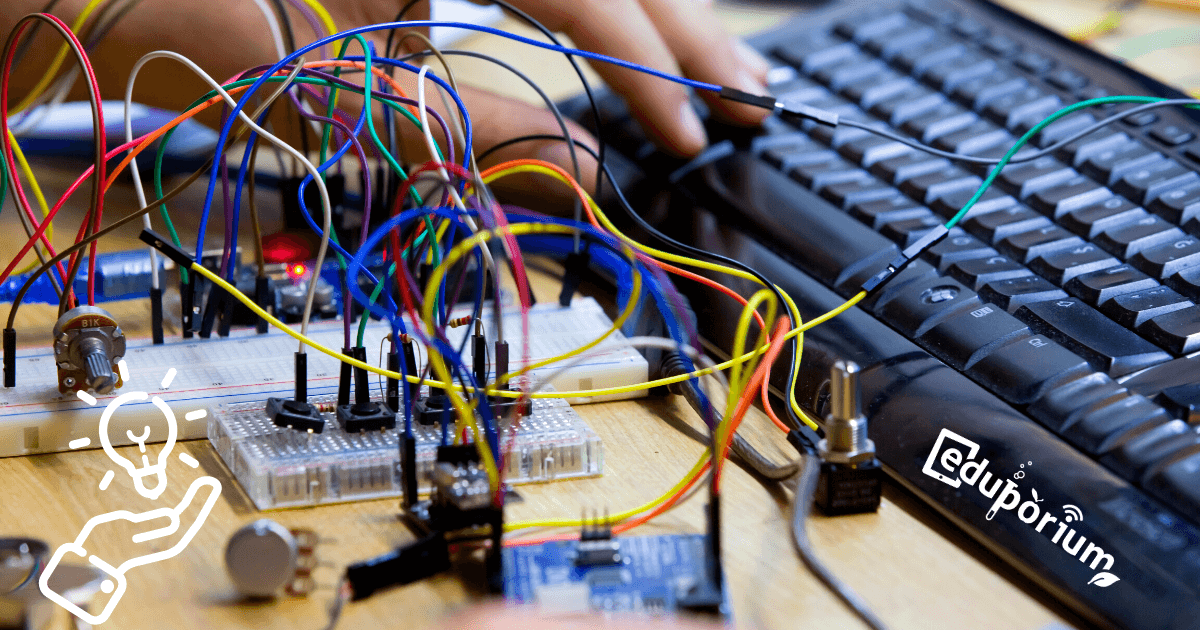I’ve always been a proponent of project-based learning, but as I discovered this past weekend, project-based learning can be even more engaging and exciting if the results can immediately be put to use. I therefore wholeheartedly suggest to parents, teachers and mentors to encourage their kids, students, and peers to attend hackathons or makeathons, or community innovation days. Better yet, host one in your community! Let me tell you about my experience, and why I feel that being part of a group of people, making something together, is an invaluable experience.
First, some context: This past Saturday and Sunday, Speak Your Mind Foundation and Brown STEAM co-hosted an Assistive Technology Makeathon, where the goal was to build software and hardware solutions to improve the quality of life for people with disabilities. For those participants that did not come with a project in mind, the hosts had a “Challenge Board”, with suggestions based on real requests by people with disabilities that they knew. For me, the one that stood out was “Music Composition App.” After asking about it, I learned that the person who had requested it used to be a jazz pianist, but after a stroke had lost all motor function and was only able to raise or lower his eyebrows. So, we need to create an application that composed music with only binary input—rest or click.
Rather than go into the finer details of how we created an application that can write, erase, and play “Mary Had a Little Lamb” by only pressing a spacebar in less than 48 hours, I’ll describe what it felt like to work on something like this, and what I learned.
- Define the goal. When you only have two days, it is more important than usual to define the goal. The hosts had set the challenge at “minimum viable product by 2pm on Sunday” (so we actually had less than two days). Sometimes, it is easy to set a goal by the number and type of functions completed. We chose to do it by defining what we wanted the application to “do”, which meant specifying which song it should be able to write and play.
2. You are a team. On such a project, everyone’s input is valuable. There is always something to do, so don’t worry if you don’t know how to do something the rest of the team does. Even if you take a task and write it out—break it down into little pieces—the work of your other team members will be easier.
3. Don’t worry about who gets it done. Your goal during such projects is to get the job done, so don’t worry if you cannot do something and have to pass it on to a teammate. Find something you can do and focus on that. It’s part of what it means to be in a team—you put aside your desire for ownership of a project and instead work together with your team members to finish the project. I certainly had to do a lot of this!
4. Have fun, and appreciate yourself for doing what you are doing! It is interesting to look back and think—what is it that kept the team going? The challenge, the knowledge that it is needed, the new experiences. Maybe not worrying about it kept us going—while we were fully intent on finishing a minimum viable product by the deadline, in essence, we were volunteering our time to make the world a better place. That is something to be proud of!
5. Don’t stop. If you enjoyed the experience, keep going. Find a mentor in the relevant subject that can help you move forward and make even greater contributions at the next hackathon or makeathon.
Convinced that you should go to that makeathon next weekend/month/summer? Take the leap! If you need to find the event first, Eduporium compiles a growing list of making and hacking events in the Resources Portal’s General section. Want to try out making and hacking, but don’t have any events nearby? I’ll be putting together a toolkit for running one—with different models based on age and ability levels. Stay tuned!



